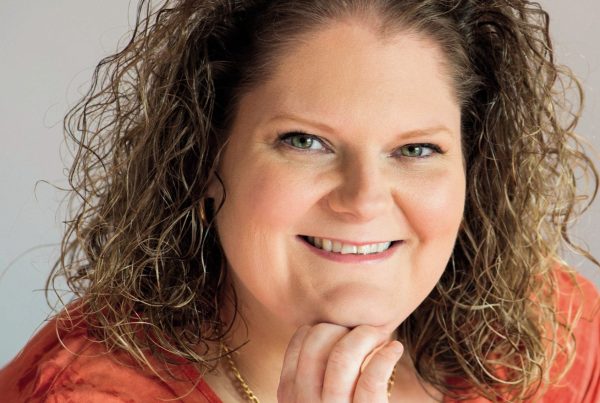When one In Vitro Fertilization (IVF) cycle fails, it is normal to feel grief, anger, disappointment, and frustration, but you should not blame yourself or your partner. The first thing that you need to be aware of when you experience IVF failure is that it is not your fault. If you have previously undergone IVF treatment and it was unsuccessful, do not give up. Try again. Many others who experienced IVF failure have gone ahead to conceive successfully.
Why does IVF fail? There are many answers to this question. Although IVF is one of the most sophisticated and effective assisted reproduction techniques available, it can fail for many reasons, and it is necessary that you appreciate that more often than not, the reason for the failure is completely out of your control. Failed IVF is not uncommon but it is a challenge that you can overcome by having the right information and following the right medical advice.
It sometimes takes two or more cycles of IVF to achieve a successful outcome, and while this can take a toll on you physically, emotionally, and mentally, it is necessary that you are aware that you are not alone in your struggle. Particularly, you should have it at the back of your mind that help is available.
One of the most common reasons why an IVF cycle fails is often due to the poor quality of the embryo. An embryo may not implant after transfer to the uterus if it is defective. An embryo may look healthy in the laboratory but may harbour defects that cause them to die rather than grow. Usually, when this happens, the problem is traceable to the embryo and not the uterus.
Another factor that plays a huge part for you when undergoing IVF is your age which directly impacts your eggs. Every woman is as old as her eggs. As you grow older, the quality and quantity of your eggs begin to diminish. This will greatly affect your chances of pregnancy with and without IVF. On average, around 25 percent of embryos used in IVF will result in a live birth. If you are older, you are more likely to have a greater chance of IVF success with donor eggs.
When starting IVF treatment, you are usually required to administer a daily injection of a fertility hormone called follicle-stimulating hormone (FSH). Occasionally, it is possible that your ovaries may not respond to the IVF medication as expected and as a result. If your ovaries do not respond correctly to this medication, you would not produce multiple eggs for collection. This may be due to the low quantity of eggs (low ovarian reserve).
Assuming that you are over 37, or in the event that you have high FSH levels, producing and releasing enough eggs may be difficult. With this, the chances of a successful IVF cycle are slim. But note that even if a poor ovarian response happens, it doesn’t mean it’s the end of your IVF treatment.
In addition, if you produce embryos with chromosomal abnormalities, it can result in IVF failure, whether such embryos are naturally conceived or developed in the laboratory. Chromosomal abnormalities are often the reason behind miscarriages and implantation failure during IVF. If you are aged over 38, you are more likely to experience chromosomal abnormalities in your eggs, and this increases further in your mid-40s. A decline in egg quantity and particularly quality also affects the chances of a clinical pregnancy or live birth through IVF treatment.
During the laboratory portion of IVF treatment, the egg(s) and the sperms are mixed together with the aim of creating an embryo or embryos, and while embryos can appear healthy in the lab when implanted into the uterus, there is a possibility that they fail to implant due to one defect or the other.
Apart from the quality of your eggs, the embryos that are produced from the fertilization process could fail to implant in the uterus because of uterine polyps, a premature increase in progesterone levels, an endometrial lining that is too thin, or an infection of the uterus, or uterine scarring from previous surgeries like fibroid surgery, caesarean section or following pregnancy termination.
Chromosomal abnormalities could be inherited from you or your partner or it could be a mutation during the early stages of the embryo division. Women that are above 35 are most likely to suffer chromosomal abnormalities but don’t let this put you off.
As much as a failed IVF can be devastating for you and your partner, you cannot afford to give up your dream of growing your family. When IVF fails there can be myriad reasons. Depending on the reason for your failed IVF, there are several solutions, ranging from trying another cycle of IVF, to third-party fertility assistance, and surrogacy, if, for whatever reason, you are unable to carry a fertilized embryo to term.
The bottom line is this: The fact is that IVF is not a guarantee; it is a service to assist you in getting pregnant and having your own baby. So as you begin a journey into the family building via assisted reproductive technologies keep this in mind:
With each cycle of IVF failure, you need to consult a specialist who will advise on what caused the failure, and assist towards improving your chances of success as you prepare to undergo another IVF cycle.
It is important to grieve after a failed IVF because the emotional impact is as overwhelming as the loss of a pregnancy, even if the IVF didn’t result in an embryo. If you have experienced an unsuccessful IVF cycle, you, and your partner, should seek support before moving forward in your treatment.
Talk to your fertility specialist who will be able to explain what may have happened and what steps to take next to redeem the situation.





